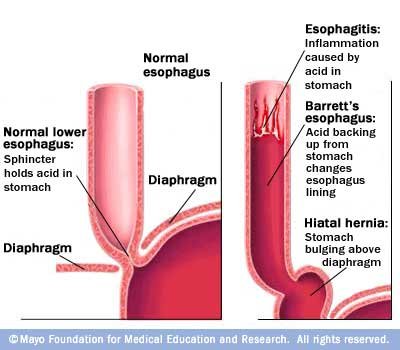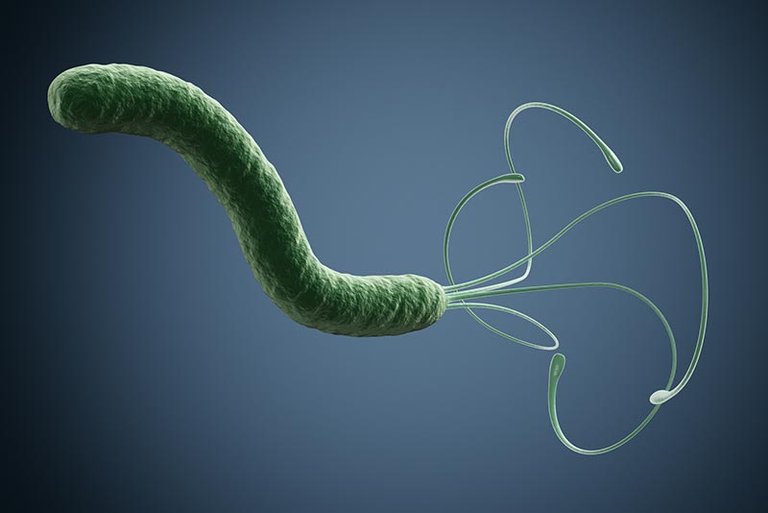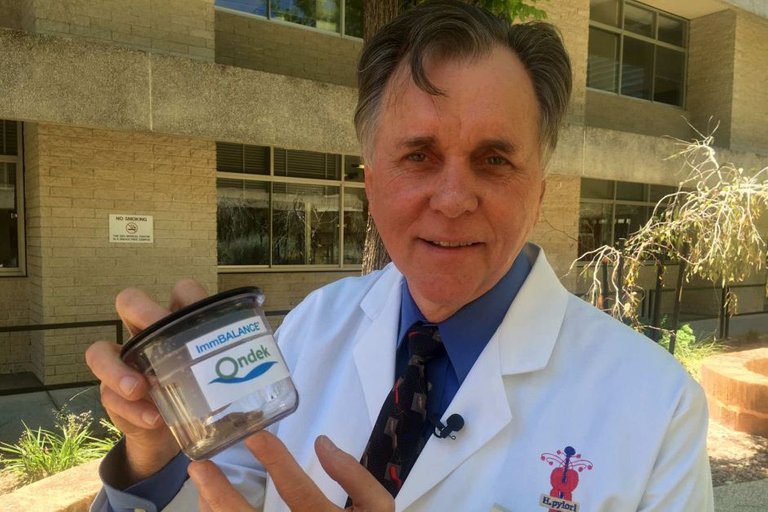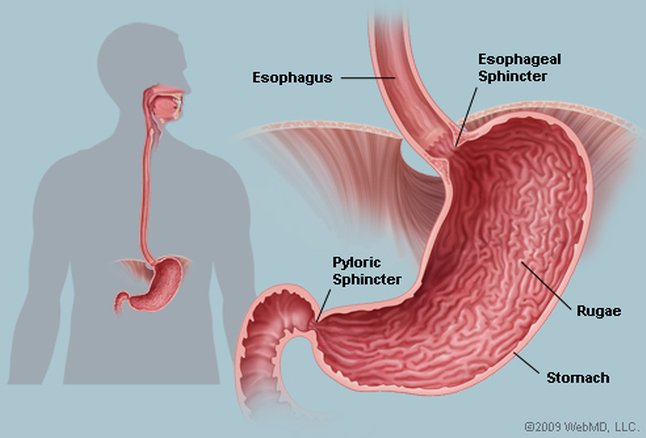
Hello Steemians! This is my first full medical post and I hope you find some value in understanding more about the diseases we will be covering. At the end of the day there is a lot of simple things you can learn about your body that can truly improve the quality of your life.
Do you suffer from chronic heartburn? Do you have a constant pain in the middle of your chest? Is this burining and radiating and often worse at night? The chances are good that you have a condition known as GORD(GERD) Gastro-Esophagal Reflux Disease. There are a few causes for chronic heartburn and GORD.
Let's take a look at the anatomy of the stomach.
There is a gastric(stomach) inlet and a gastric outlet(called the pyloric valve). The inlet is known as a pseudo or anatomic valve which means it is not a true valve but the way it is situated underneath the diaphragm and the position of the stomach creates this "valve" function. But what happens to so many patients is that the superior(top) part of the stomach herniated ,which means it protrudes through the diaphragm, into the chest cavity. This is known as an hiatus hernia.

So now the valve has been compromised and the acidic gastric juices has a free flowing passage into the esophagus. This is what causes heartburn on an almost daily basis and starts damaging the the mucosal layer of your esophagus which is a condition by itself caused "Barrets Esophagus".
Let us delve deeper into the quality of the gastric juice and the history of gastric ulcers. For years medical professionals had a common misconception based on the singular belief that the gastric fluid is acidic at such a level that no organism can grow and survive inside it.
Helicobacter Pylori (H.Pylori)

Dr Barry Marshall got a Registrar position at the Royal Perth Hospital in 1979. Here he met Robin Warren who was a pathologist interested in gastritis. At the time in the medical community the idea of an organism causing gastric(peptic) ulcers and gastritis was ridiculed. So the pair of them set out on a mission to culture the spiral bacteria that they proposed was the culprit. They succeeded in culturing the bacteria from the 31st throat swab that was accidentally not thrown away after the standard 2days, this discovery happening on day 5.
So now armed with the evidence they needed they submitted their findings in 1983 but their article was turned down and rated in the bottom 10% of papers published in 1983.
After failed attempts to infect piglets in 1984, Marshall, after having a baseline endoscopy done, drank a broth containing cultured H. pylori, expecting to develop, perhaps years later, an ulcer. He was surprised when, only three days later, he developed vague nausea and halitosis (due to the achlorhydria, there was no acid to kill bacteria in the stomach, and their waste products manifested as bad breath), noticed only by his mother. On days 5–8, he developed achlorydric (no acid) vomiting. On day eight, he had a repeat endoscopy, which showed massive inflammation (gastritis), and a biopsy from which H. pylori was cultured, showing it had colonised his stomach. On the fourteenth day after ingestion, a third endoscopy was done, and Dr Marshall began to take antibiotics.
Interestingly, Dr Marshall did not develop antibodies to H. pylori, suggesting that innate immunity can sometimes eradicate acute H. pylori infection. Marshall's illness and recovery, based on a culture of organisms extracted from a patient, fulfilled Koch's postulates for H. pylori and gastritis, but not for peptic ulcer. This experiment was published in 1985 in the Medical Journal of Australia and is among the most cited articles from the journal.

In 2005, the Karolinska Institute in Stockholm awarded the Nobel Prize in Physiology or Medicine to Marshall and Robin Warren, his long-time collaborator, "for their discovery of the bacterium Helicobacter pylori and its role in gastritis and peptic ulcer disease

Video: Dr Marshall talking about his experiences surrounding H.Pylori
This is an amazing story and for a doctor to ingest bacteria to prove a disease is actually caused by it, is really a risky move especially for a medical professional.
Today it has been proven that in more than 70% of gastric ulcer patients H.Pylori is present. Therefore when you present with these symptoms it's important to question your treating physician about H.Pylori, usually with a gastroscopic investigation for gastric ulcers, the gastric acid is aspirated and tested for H.Pylori so there are measures in place for making this diagnosis but sometimes we wait too long and gastric ulcers can lead to serious illness if it goes untreated indefinitely. One example is gastric rupture(when the stomach ruptures into the abdominal cavity).
The other important cause of gastric ulcers are NSAID's(Non Steroidal Anti-Infalammatory Drugs) for example aspirin, taking this class of medicines religiously causes damage of the mucosal lining of the stomach and results in ulcers. Smoking can also contribute as a cause.
It is important to go see your doctor and get these problems identified and treated as soon as possible. This will save you a lot of problems and this will improve your quality of life as seemingly simple diseases like this can really interfere with a person's life.
Thank you for reading & embrace the healthier side of life!


@hunterkennedy Wow what a great post, i never knew that bugs can grow in a persons stomach, never thought about it before! Awesome information here.
@jsonknightlee Thanks man, I appreciate the positive feedback!